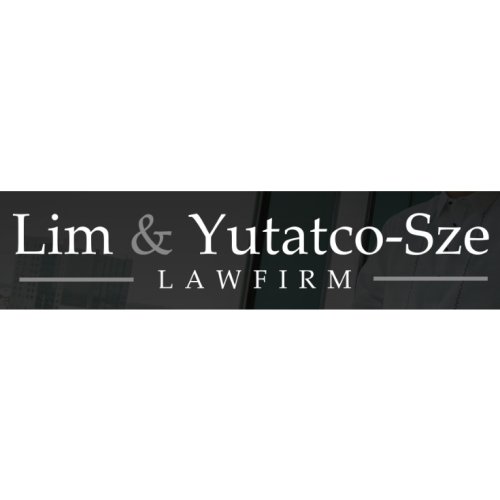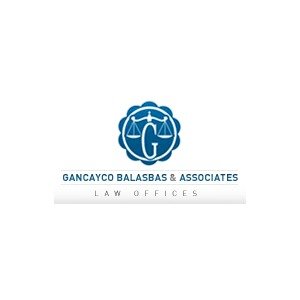Best Funds & Asset Management Lawyers in Manila
Share your needs with us, get contacted by law firms.
Free. Takes 2 min.
List of the best lawyers in Manila, Philippines
About Funds & Asset Management Law in Manila, Philippines
Funds and asset management law in Manila, Philippines, covers the legal frameworks surrounding the creation, management, and oversight of pooled investment vehicles such as mutual funds, hedge funds, collective investment schemes, and private equity funds. This area of law ensures that funds are managed professionally and ethically, with the proper safeguards for investors. The Securities and Exchange Commission (SEC) of the Philippines is the main regulatory authority overseeing asset managers, investment advisory firms, and the funds they administer. These regulations aim to foster a stable, transparent, and investor-friendly financial environment in Manila and throughout the country.
Why You May Need a Lawyer
Seeking legal advice in funds and asset management can be essential for various reasons. Whether you are an individual investor, a prospective fund manager, or a business entity looking to establish or invest in a fund, qualified legal counsel can guide you through complex regulatory requirements and help you protect your interests. Common situations where you may need a lawyer include:
- Registering a new investment fund or management company with the SEC
- Drafting or reviewing fund offering documents, management agreements, or trust deeds
- Ensuring compliance with anti-money laundering policies and investor protection laws
- Addressing disputes between managers, investors, or regulatory bodies
- Understanding tax implications and structuring funds efficiently
- Responding to SEC inquiries or investigations about fund activities
- Navigating cross-border investments and foreign investor requirements
Local Laws Overview
The regulatory framework for funds and asset management in Manila is primarily governed by the Investment Company Act, the Securities Regulation Code, and rules issued by the Securities and Exchange Commission (SEC). The SEC requires all collective investment schemes and asset managers to be duly registered. Fund managers must comply with requirements regarding capital, corporate governance, disclosure, and reporting. There are strict rules to protect investors, such as limits on investment types, segregation of client assets, and mandatory reporting of portfolio performance. In addition, anti-money laundering laws and Know-Your-Client (KYC) regulations apply. Certain funds, like Real Estate Investment Trusts (REITs) and mutual funds, have specialized regulatory regimes tailored to their operations.
Frequently Asked Questions
What is an investment fund?
An investment fund pools money from multiple investors to invest in securities and other assets according to a defined strategy. Common types include mutual funds, unit investment trust funds (UITFs), and hedge funds.
Who regulates asset management companies in Manila?
The Securities and Exchange Commission (SEC) is the main regulator. Banks offering UITFs are regulated by the Bangko Sentral ng Pilipinas (BSP).
Do investment funds need to be registered?
Yes, investment funds must be registered with the SEC, and are subject to ongoing reporting and compliance obligations to protect investors.
What qualifications must a fund manager have?
Fund managers must meet capital, integrity, and experience requirements, and must be registered with the SEC. They are also subject to fit and proper rules.
What risks should investors be aware of?
Investment funds carry market risk, management risk, liquidity risk, and legal or regulatory risk. Review the fund prospectus and seek legal advice to understand these risks.
Can foreigners invest in Philippine funds?
Yes, but there may be restrictions or additional requirements, especially for specific sectors or asset classes. Always consult with a lawyer regarding foreign ownership rules.
How are disputes between investors and fund managers resolved?
Disputes are often resolved through internal grievance mechanisms, mediation, or by filing a complaint with the SEC or courts if necessary.
What are anti-money laundering requirements?
Fund managers must establish robust procedures to identify clients, monitor transactions, and report suspicious activities to comply with anti-money laundering laws.
Are there taxes on investment income from funds?
Yes, investment income such as interest, dividends, and capital gains may be subject to Philippine taxes. Specific rates vary depending on the fund type and investor status.
What documents should I review before investing?
Always review the fund's prospectus, offering document, financial statements, and SEC registration status. Legal advice is recommended to fully understand these documents.
Additional Resources
If you need further information or support, consider reaching out to these organizations and agencies:
- Securities and Exchange Commission (SEC) - The primary regulator for funds and asset managers in the Philippines.
- Bangko Sentral ng Pilipinas (BSP) - Regulates banks and trust entities offering investment products.
- Philippine Investment Funds Association (PIFA) - Industry organization representing mutual funds in the country.
- Integrated Bar of the Philippines (IBP) - Can help you find licensed lawyers specializing in funds and asset management law.
- Local law firms specializing in financial services and investment law
Next Steps
If you are considering setting up a fund, investing in a managed asset scheme, or need help navigating regulatory issues in Manila, it is crucial to seek professional legal advice. Start by identifying your needs, gathering all relevant documents, and preparing a list of questions or concerns. Consult with a law firm or a qualified attorney who specializes in funds and asset management law in the Philippines. The lawyer will help review your situation, explain your rights and obligations, and guide you through the compliance and regulatory processes required. This proactive approach can help safeguard your investments, ensure legal compliance, and protect your interests in the dynamic world of asset management.
Lawzana helps you find the best lawyers and law firms in Manila through a curated and pre-screened list of qualified legal professionals. Our platform offers rankings and detailed profiles of attorneys and law firms, allowing you to compare based on practice areas, including Funds & Asset Management, experience, and client feedback.
Each profile includes a description of the firm's areas of practice, client reviews, team members and partners, year of establishment, spoken languages, office locations, contact information, social media presence, and any published articles or resources. Most firms on our platform speak English and are experienced in both local and international legal matters.
Get a quote from top-rated law firms in Manila, Philippines — quickly, securely, and without unnecessary hassle.
Disclaimer:
The information provided on this page is for general informational purposes only and does not constitute legal advice. While we strive to ensure the accuracy and relevance of the content, legal information may change over time, and interpretations of the law can vary. You should always consult with a qualified legal professional for advice specific to your situation.
We disclaim all liability for actions taken or not taken based on the content of this page. If you believe any information is incorrect or outdated, please contact us, and we will review and update it where appropriate.

















